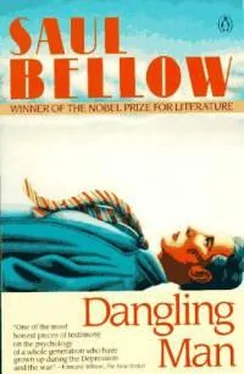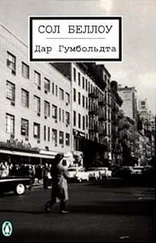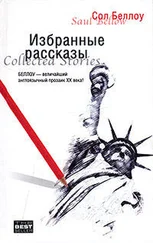Сол Беллоу - Dangling Man
Здесь есть возможность читать онлайн «Сол Беллоу - Dangling Man» весь текст электронной книги совершенно бесплатно (целиком полную версию без сокращений). В некоторых случаях можно слушать аудио, скачать через торрент в формате fb2 и присутствует краткое содержание. Жанр: Современная проза, на английском языке. Описание произведения, (предисловие) а так же отзывы посетителей доступны на портале библиотеки ЛибКат.
- Название:Dangling Man
- Автор:
- Жанр:
- Год:неизвестен
- ISBN:нет данных
- Рейтинг книги:4 / 5. Голосов: 1
-
Избранное:Добавить в избранное
- Отзывы:
-
Ваша оценка:
- 80
- 1
- 2
- 3
- 4
- 5
Dangling Man: краткое содержание, описание и аннотация
Предлагаем к чтению аннотацию, описание, краткое содержание или предисловие (зависит от того, что написал сам автор книги «Dangling Man»). Если вы не нашли необходимую информацию о книге — напишите в комментариях, мы постараемся отыскать её.
Dangling Man — читать онлайн бесплатно полную книгу (весь текст) целиком
Ниже представлен текст книги, разбитый по страницам. Система сохранения места последней прочитанной страницы, позволяет с удобством читать онлайн бесплатно книгу «Dangling Man», без необходимости каждый раз заново искать на чём Вы остановились. Поставьте закладку, и сможете в любой момент перейти на страницу, на которой закончили чтение.
Интервал:
Закладка:
"Joseph!" he exclaimed. "I don't know what to do with you. I'm beginning to think you're not all there, with your convictions and your hotr-to I wish I knew how it was going to turn out with you. You'll ruin yourself in the end.
Think of Iva sometimes. What's her future going to be like?"
"Oh, the future."
"That's what I said."
"Well, who the devil has one?"
"Everybody," Amos said. "I have."
"Well, you're in luck. I'd think about it a little if I were you. There are many people, hundreds of thousands, who have had to give up all thought of future. There is no personalfuture any more. That's why I can only laugh at you when you tell me to look out for my future in the Army, in that tragedy. I wouldn't stake a pin on my future.
And maybe I wouldn't have yours @? Toward the end my voice had begun to shake.
Amos faced me quietly for a while. Then he said, "Take the money, Joseph," and left. I heard him going downstairs.
I sat on the bed groggily, holding my head.
There was a weak lamp burning in one corner; frohi its copper slot one band of light crossed the curtain; the rest of the room was nearly dark. The ceiling had become a screen for the accidental motions of the greenish street beyond, and across half its width was thrown intact a reflection of the Venetian blind, like the ribs of some immemorial fish. What sort of impression had my words made on Amos? It was impossible to tell. What could he think? Perhaps he considered me more hopeless than ever. But what did I think? Was what I had said half as true as it was impetuousthHis neat vision of personal safety I disowned, but not a future of another kind. Still, how could I reason with him? He was a distance beyond reckoning from the craters of the spirit, so that they were no more than small pits on his horizon. But in time they would draw closer. Yes, everyone came to face them when those horizons shrank, as they could not fail to shrink. I went to the bath. room and washed. The crammed feeling at my heart began to wear off, and when I hung the towel back on its glass rod I was less confused. I picked up the hundred-dollar bill from the dusk of the carpet where it had fallen. If I tried to hand it back now there would be a scene; I knew better than to try. I searched the top of Amos's dresser for a pin or clasp of some kind. Not finding one there, I opened one drawer after another until, in Dolly's dressing table, I came upon a pincushion. I went to the bed and stuck the bill to the counterpane over the pillow. Then, in the hall, I stood for a while, hearing the husky voice of. the radio speaker below and the laughter and comment of the others. I decided not to join them.
Instead, though I knew it meant working a hardship on Ira to leave her to Doily, Etta, and Amos, I climbed to the third floor. There, in what had once been an attic, Dolly had furnished a music room. One entire side of it was taken up by a broad monster of a piano which crouched on bowed legs, awaiting use. It was, however, seldom touched, for it had been replaced downstairs by a more jaunty and stylish instrument that showed its teeth like a darky entertainer. On the opposite side of the room was a phonograph with a shelf of records above it. I began to look for a record I had bought Etta a year ago, a Haydn divertimento for the cello, played by Piatigorsky. To find it, I had to hunt through a dozen albums. Here Dolly and Etta, for all their sense of property, were careless; there were numerous broken records. But I found mine whole and, thankfully-my dejection would have doubled if it had been cracked or missing-I started it, and sat down facing the piano.
It was the first movement, the adagio, that I cared most about. Its sober opening notes, preliminaries to a thoughtful confession, showed me that I was still an apprentice in suffering and humiliation. I had not even begun. I had, furthermore, no right to expect to avoid them. So much was immediately clear.
Surely no one could plead for exception; that was not a human privilege. What I should do with them, how to meet them, was answered in the second declaration: with grace, without meanness. And though I could not as yet apply that answer to myself, I recognized its rightness and was vehemently moved by it. Not until I was a wholo man could it be my answer, too.6"st And was I to become this whole man alone, without aid? I was too weak for it, I did not command the will.
Then in what quarter should I look for help, where was the power? Grace by what law, under what order, by whom required? Personal, human, or universal, was it? The music named only one source, the universal one, God. But what a miserable surrender that would be, born out of disheartenment and chaos; and out of fear, bodily and imperious, that like a disease asked for a remedy and did not care how it was supplied. The record came to an end; I began it again. No, not God, not any divinity. That was antwithior, not of my own deriving.
I was not so full of pride that I could not accept the existence of something greater than myself, something, perhaps, of which I was an idea, or merely a fraction of an idea. That was not it. But I did not want to catch at any contrivance in panic. In my eyes, that was a great crime. Granted that the answer I was hearing, that went so easily to the least penetrable part of me, the seldom-disturbed thickets around the heart, was made by a religious man. But was there no way to attain that answer except to sacrifice the mind that sought to be satisfied? From the antidote itself another disease would spring. It was not a new matter, it was one I had frequently considered. But not with such a desperate emotion or such a crucial need for an answer. Or such a feeling of loneliness. Out of my own strength it was necessary for me to return the verdict for reason, in its partial inadequacy, and against the advantages of its surrender.
As I began to play the record for the third time, Etta came into the room. Without speaking to me, she went to the shelf and, taking down a bright-colored album, waited, an impatient frown on that fresher and somewhat harder or unworked version of my own face. I now scarcely heard the music. I was already braced for a struggle, the inevitabilityof which I recognized at once. I groped inside the cabinet of the phonograph for the lever.
"Just a minute. What are you doing?" she said, eomin@. forward a step.
I turned with an aggressive movement.
"What?" I said. "I want to use the machine, Joseph." not finished with it yet."
"I don't care," she insisted. "You've had it to yourself all this time. It's my turn. You've been playing that thing over and over."
"You snooped, didn't you?" I said accusingly.
"I did not. It was so loud everybody heard it downstairs."
"You'll have to wait, Etta."
"I" want to play these Cugat rec-will not, she said. "I ords Mama gave me. I've been wanting to hear them all day."
I did not step aside. At my back the turntable whirred, the needle making a dull scrape among the last grooves. soon as I play the second part of this I'll go."
"But you've had the phonograph since dinner.
It's my turn."
"And I say no," I replied.
"You have no business saying no to me," she said.
"No business," I exclaimed with an abrupt, raw jerk of anger.
"It's my phonograph; you're keeping me from my phonograph I @?
"Well, if that isn't small!" I said.
"What you call me or think about me doesn't matter."
Her voice rose above the tac-a. ountac of the machine. "I want to listen to Cugat. I don't care."
"Look," I said, making a strong effort to control myself. "I came up here with a purpose.
What purpose it isn't necessary to tell you. But you couldn't stand to think that I was here alone, no matter why. Maybe you thought I was enjoying myself, ah? Or hiding away? So you hurried to see if you could spoil it for me. Isn't that true?"
Читать дальшеИнтервал:
Закладка:
Похожие книги на «Dangling Man»
Представляем Вашему вниманию похожие книги на «Dangling Man» списком для выбора. Мы отобрали схожую по названию и смыслу литературу в надежде предоставить читателям больше вариантов отыскать новые, интересные, ещё непрочитанные произведения.
Обсуждение, отзывы о книге «Dangling Man» и просто собственные мнения читателей. Оставьте ваши комментарии, напишите, что Вы думаете о произведении, его смысле или главных героях. Укажите что конкретно понравилось, а что нет, и почему Вы так считаете.







